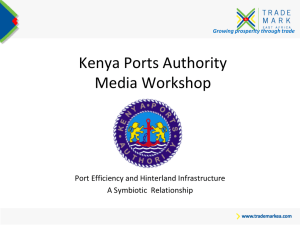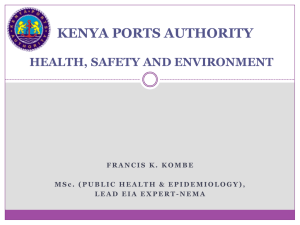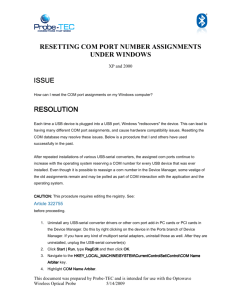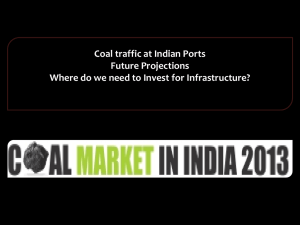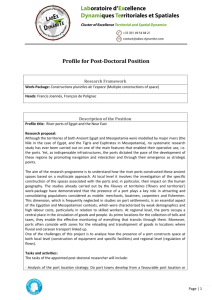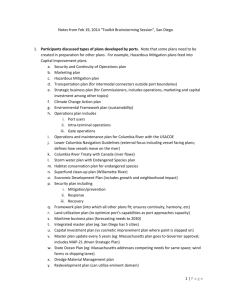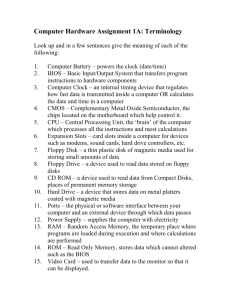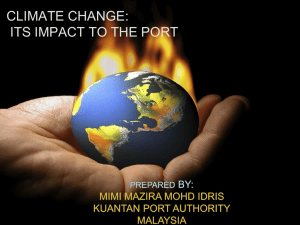time to reform east africa's ports?
advertisement
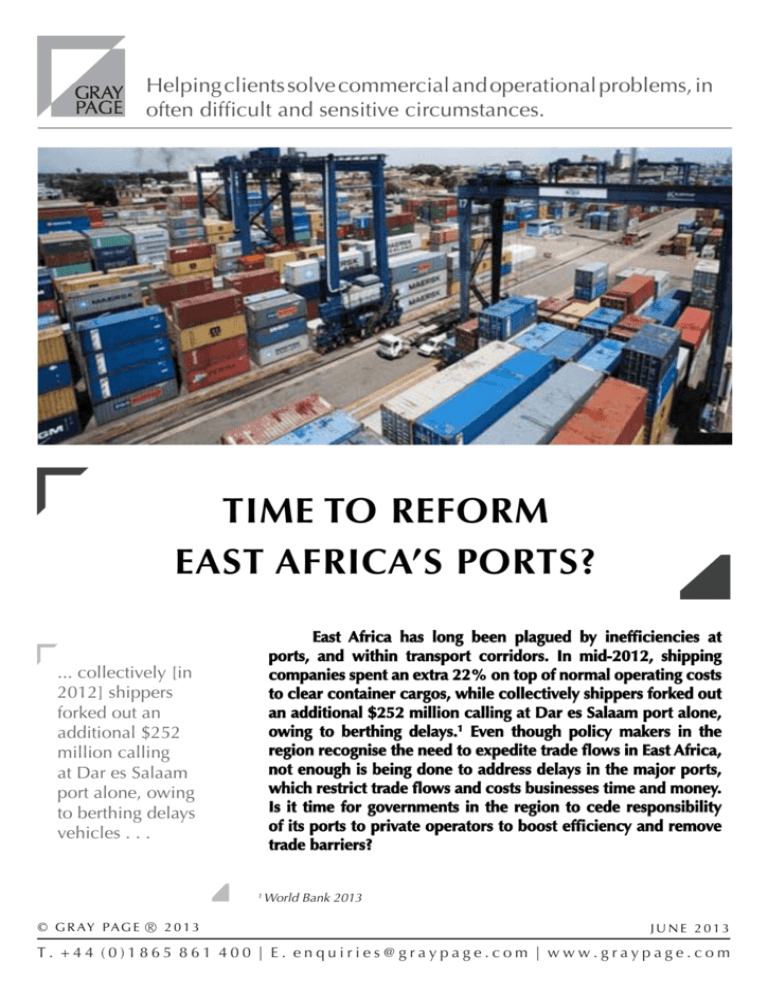
Helping clients solve commercial and operational problems, in often difficult and sensitive circumstances. TIME TO REFORM EAST AFRICA’S PORTS? East Africa has long been plagued by inefficiencies at ports, and within transport corridors. In mid-2012, shipping companies spent an extra 22% on top of normal operating costs to clear container cargos, while collectively shippers forked out an additional $252 million calling at Dar es Salaam port alone, owing to berthing delays.1 Even though policy makers in the region recognise the need to expedite trade flows in East Africa, not enough is being done to address delays in the major ports, which restrict trade flows and costs businesses time and money. Is it time for governments in the region to cede responsibility of its ports to private operators to boost efficiency and remove trade barriers? ... collectively [in 2012] shippers forked out an additional $252 million calling at Dar es Salaam port alone, owing to berthing delays vehicles . . . 1 © G R AY P A G E ® 2013 World Bank 2013 JUNE 2013 T. +44 (0)1865 861 400 | E. enquiries@graypage.com | www.graypage.com TIME TO REFORM EAST AFRICA’S PORTS? | 2 For a region considered as a major future energy player, East Africa’s inefficient port and transport network continues to burden domestic and foreign business. Cumbersome border procedures, road blockages and port congestion - known collectively as Non-Tariff Barriers to trade (NTBs) - plague companies by driving up the time and cost of doing business in east and central Africa. Not only does this impact on the East African economy, it deters foreign businesses from operating and investing in the region. It is not hard to see why: according to the World Bank in 2013, the Tanzanian trade corridor, which stretches from Dar es Salaam (Tanzania) through to Lusaka (Zambia), is recognised as one of the world’s most expensive routes through which to move cargo. Similarly, the northern trade passage dissecting Kenya and reaching up to Uganda and South Sudan is dogged by expensive clearance procedures and weighbridges placing additional strains on freighters moving goods in and out of East Africa. . . . the Tanzanian trade corridor... is recognised as one of the world’s most expensive routes through which to move cargo. However, one of the root problems which blights the supply chain in East Africa is the region’s highly congested gateway ports (Mombasa and Dar es Salaam), which are dogged by inefficiencies and clearance delays. It is not uncommon for ships calling in Mombasa to be held-up for up to 10 days before being processed and eventually cleared. Such delays are even greater in Dar es Salaam, which take ships on average up to 10 days to berth, and an additional 10 days to clear cargos at port.2 Not only does this expose cargos to criminality and misconduct, but it suspends deliveries to their final destination - a cost ultimately footed by private companies operating in the region. It is not uncommon for ships calling in Mombasa to be held-up for up to 10 days before being processed and eventually cleared. Although regional policy makers have made moves to tackle congestion, particularly in the last six months, it continues to be a costly region to operate in, so much so that companies are known to bypass the gateway ports altogether in favour of smaller ones such as Beira (Mozambique) and Mtwara (Tanzania). If East Africa is to capitalise on the huge resource potential within its gas-rich basins, along with the increase in business interests in the East African Community (EAC), it is essential that the region is serviced by an efficient port network, meaning that significant changes are required to streamline the current state-managed ports. The sticking point is that governments are not prepared to cede control of the ports in favour of private operators, despite calls in the region for change, particularly from Uganda and Rwanda. 2 © G R AY P A G E ® 2013 World Bank 2013 JUNE 2013 T. +44 (0)1865 861 400 | E. enquiries@graypage.com | www.graypage.com TIME TO REFORM EAST AFRICA’S PORTS? | 3 Many have urged Kenya and Tanzania to hand over responsibility of its ports to external operators. Such a move would help remove operational inefficiencies and corruption, while boosting competition and business generation at the interface of East Africa’s trade passage. The Kenya Port Authority has been found seeking bribes 3 to facilitate goods clearance, and the Tanzanian Port Authority has recently been investigated on claims of fuel smuggling, corruption and goods ‘disappearances’. While small personnel changes have been made in the Tanzanian Port Authority, following allegations of corruption in February this year, Dar es Salaam continues to restrict economic development in the region. Likewise, Kenya’s recently elected President, Uhuru Kenyatta, has confirmed that he will not look toward the private sector to reform Mombasa Port, despite recognising the need to tackle congestion and corruption. Instead, he is addressing trade barriers by making small management changes at the top of the port authority, and making small legislative changes along Kenya’s transport corridors. This, it is generally agreed, will not bring about the type of change needed to boost the efficiency of operations in Mombasa. While Dar es Salaam has had a helping hand from privatesector contractors since 2000, the improvements have been offset by the government managed port authority. It appears that Kenya and Tanzania are not prepared to compromise their stake in their ports, despite the improvements it would undoubtedly bring to the regional economy. Kenya’s President, Uhuru Kenyatta, has confirmed that he will not look toward the private sector to reform Mombasa Port... Apart from increased rhetoric and future proposals to develop ports, notably the ‘mega port’ and transport corridor at Lamu (LAPPSET project), the Tanzanian and Kenyan governments are failing to tackle entrenched efficiencies at its existing ports. State-run Mombasa and partly state-run Dar es Salaam lack operational capability and are hindered by a culture of bureaucracy and corruption, largely arising from the country’s staterun port management. It seems that little is actually being done to ease trade at port other than minor personnel changes and adjustments to borders procedures along trade corridors. Kenya has flip-flopped over plans to privatise Mombasa in the past, and is highly influenced by the strong role the unions play in opposing such plans. Not wishing to upset the applecart and cut local jobs in Mombasa port sector, it looks likely in 2013 and beyond that President Kenyatta will take a soft approach to port reform and not hand control over to the private sector. In East African in ports, the management and bureaucracy are recognised as both a source of inefficiency and a direct result of inefficiency. As many regional and The Tanzanian Port Authority has recently been investigated on claims of fuel smuggling, corruption and goods ‘disappearances’… 3 © G R AY P A G E ® 2013 World Bank 2013 JUNE 2013 T. +44 (0)1865 861 400 | E. enquiries@graypage.com | www.graypage.com TIME TO REFORM EAST AFRICA’S PORTS? | 4 management and bureaucracy are recognised as both a source of inefficiency and a direct result of inefficiency… international players recognise, and have done for many years, this is unlikely to change unless governments look toward the private sector to operate and manage the ports. HOW WE CAN HELP Our experts help clients manage and mitigate operational risks in complex environments around the world. We provide: • Incident response and crisis management support • Security risk management services • Intelligence assesment and analysis CONTACT US James Wilkes, Managing Director E. james.wilkes@graypage.com Jim Mainstone, Head of Intelligence E. jim.mainstone@graypage.com Joe Corless, Operations Director E. joe.corless@graypage.com Edward Cross, Head of Asset Protection E. edward.cross@graypage.com James Walters, Head of Investigations E. james.walters@graypage.com Vicente Velasco, Analyst - Latin America E. vicente.velasco@graypage.com Freddie Tyler, Analyst - West Africa E. freddie.tyler@graypage.com Phil de Burgh, Analyst - East Africa E. phil.deburgh@graypage.com CRISIS RESPONSE TEAM [24 HOURS] +44 (0) 1865 861 444 READ MORE This paper, among others, can be viewed and downloaded at www.graypage.com/think-tank BRIEFINGS Our Experts provide in-house seminars across a range of maritime issues. For more information please contact Theresa Canning| E. theresa.canning@graypage.com or marketing@graypage.com This paper is intended as a general summary of issues in the stated field. It is not a substitute for authoritative advice on a specific matter. It is provided for information only and free of charge. Every reasonable effort has been made to make it accurate and up to date but no responsibility for its accuracy or correctness, or for any consequences of reliance on it, is assumed by Gray Page. © G R AY P A G E ® 2013 JUNE 2013 T. +44 (0)1865 861 400 | E. enquiries@graypage.com | www.graypage.com
